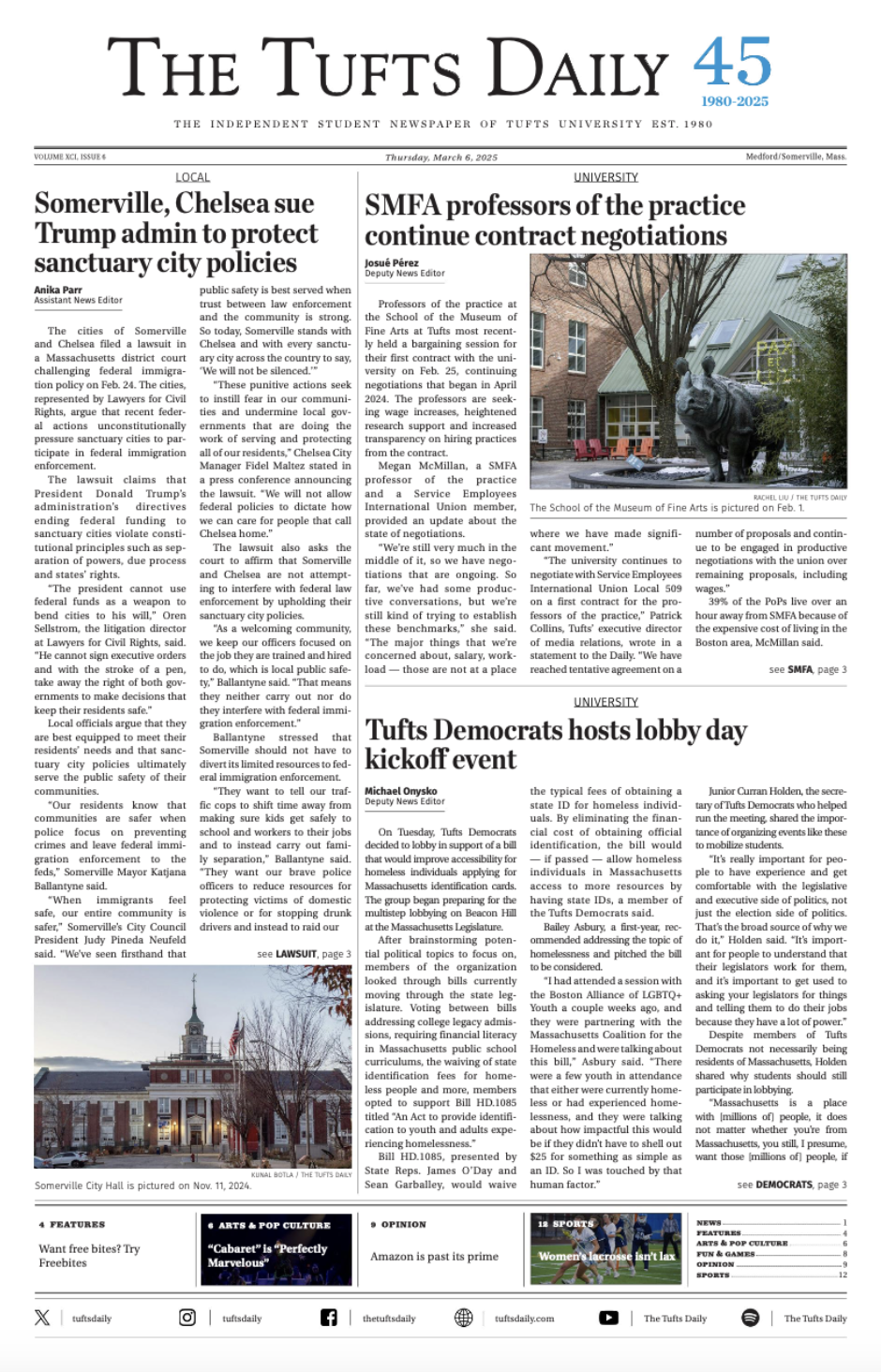Early on Sept. 11, two dams built 50 years ago in Libya broke due to large amounts of rainfall from Storm Daniel. One of them, the Derna dam, held 4.76 billion gallons of water. Much of Derna was positioned within the water’s path of destruction, leaving as much as a third of the city destroyed. This catastrophic event has led to the deaths of over 11,300 and left more missing. Many Libyans are now left completely stranded without food, water and shelter. Some countries have taken humanitarian action, with Turkey sending aircrafts carrying humanitarian aid and Italy sending its civil defense team to help with rescue operations.
Given the complicated history between the United States and Libya, the U.S. must take an active role in rescue and rebuilding efforts; however, the United States has done relatively little to help alleviate the situation.
Since 2014, Libya has been stuck in a power struggle between the Libyan National Army and the United Nations-backed Government of National Accord. The U.S. officially supports the GNA but has not directly provided them any support, with their support being mainly provided through the U.N. The U.S. has not condemned the LNA; instead, it is mainly focusing its efforts on countering terrorism in the region. These two powers have been in a constant power struggle, with foreign powers such as Russia backing the LNA and the U.N. backing the GNA.
This constant state of war, which just recently reached a break with a ceasefire being officially signed on Oct. 23, 2020, can be traced back to U.S. and NATO intervention in the region.
In 2011, the U.S. took action with NATO to unseat Colonel Muammar Gaddafi, the president of Libya at the time. The operation was successful and Gaddafi’s regime fell. The rebuilding of Libya then began, and the U.S. took on a reduced role, focusing on instituting democracy in the nation with help from the U.N. and the EU. However, this effort failed and led to conflict between two rival groups with different ideologies, causing constant unrest and leaving many cities war-torn. Today, Libya faces another crisis and needs the world’s support. The U.S.’ failure to engage in tactful diplomacy between the LNA and GNA has crippled relief efforts internally.
The leader of the LNA, Khalifa Hifter, is attempting to take full control of relief efforts. His forces have blocked journalists and the U.N. from getting into the city, creating a major barrier to aid. He claims his actions are to resolve the disaster and bring aid to the people. However, as his actions have shown, he has only made the situation worse. While other countries and groups are trying to help, Khalifa Hifter is only adding more complications to humanitarian efforts.
Khalifa Hifter has clearly shown himself to be power-hungry and is unduly causing suffering to the Libyan people. He even led an attack on Tripoli in 2019 just as peace talks were about to begin in the Libyan civil war.
The U.S. monitors the LNA, but has yet to denounce their dictatorship. The U.S. must use its powerful presence in the area to publicly condemn the actions of Khalifa Hifter and demand he allow aid through the country’s borders instead of preventing it.
President Biden recently pledged to help relief efforts in Libya by sending $11 million to the U.N. Although this is a step in the right direction, the U.S. is still not taking responsibility for its past actions in Libya, leaving it to be fixed by others. The U.S. must also directly condemn and address the LNA’s direct blocking of rescue materials, which is only leading to more deaths. If the U.S. wants to make a meaningful impact, it must use its presence in the region to promote this change through new and tactful diplomacy between these two sides.






